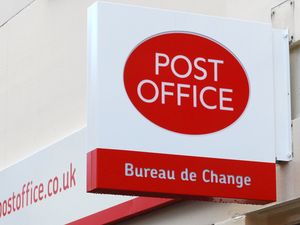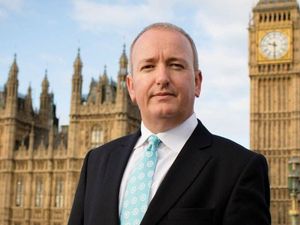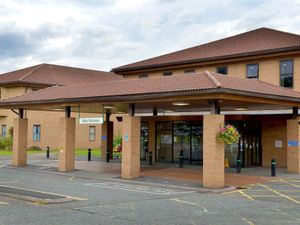'Time to change the way our council works'
In an open letter to the Shropshire Star, Ludlow councillor Andy Boddington says local democracy is failing Shropshire. He says it needs to take a new, decentralised route.

"My old employer, Northamptonshire County Council is on the verge of going bankrupt. Its financial problems have triggered plans to regroup the county’s eight councils into two unitary authorities.
But going unitary is not the only way of reforming local government. Councils planning to go unitary could learn lessons from Shropshire. We must also learn lessons from our own experience.
Barely a day goes by without someone telling me it was wrong for the county to go unitary in 2009.
They complain that rural areas and towns like Ludlow are longer heard in Shirehall. They say we don’t get the investment that Shrewsbury and Oswestry get. They protest that services are being concentrated in the county town.
They are right about the north of the county sucking up the lion’s share of council cash. Are they right that it was wrong to go unitary? Could we reverse the process?
Going unitary is the current fashion. Dorset has agreed to reduce its nine councils into two unitary authorities next year. Other unitary councils are being proposed, including in Buckinghamshire, Oxfordshire, Leicestershire, Somerset and Nottinghamshire. These moves are partly driven by government budget cuts. Political ambitions of local council leaders are as important.

Councils thinking of going unitary could learn a lot from Shropshire.
A unitary council is a single tier council combining the functions of county and district councils.
Traditionally, many council areas in England, especially rural counties, have been organised into two decision-making tiers. County councils have powers over transport, education, libraries and social services. District councils lead on rubbish and recycling, housing, maintaining parks and most planning applications.
One of the main problems councils face is the rocketing cost of adult social care. Whitehall refuses to fund this fully. That means county and unitary councils must stump up cash they often don’t have. At the same time, the government has cut funding for councils by 50 per cent.
The rising cost of adult social care is just one reason why Northamptonshire is close to bankruptcy.
The other reason is political dogma. For years, the council boasted it did not need to raise council tax.
That starved it of resources and left it vulnerable to growing financial pressures. Shropshire Council also refused to raise council tax for years. That’s why it has a £10 million pothole in its highways budget.
Going unitary is not the only model for reorganising local government. It is not necessarily the best.
Many councils have chosen to share back office and other functions.

Adur and Worthing councils work under a single team of officers but remain two elected bodies.
Lewes and Eastbourne councils deliver most services through shared teams. Chiltern and South Bucks councils collaborate on strategic planning. There are dozens of similar examples.
We could have gone down that route in Shropshire. Or reorganised into three unitary councils; North Shropshire, Shrewsbury and South Shropshire. Back office and strategy could have been shared. A local democracy reflecting the diverse needs of our county could have been maintained.
We didn’t go down that route. We must now live with a unitary structure. There is no going back. But a unitary council doesn’t have to work in the centralised way that Shropshire Council does.
When ministers announced the unitary council would go ahead, the Shropshire Star reported Ludlow MP Philip Dunne as saying: “Today is a dark day for democracy in Shropshire.”
He has been proved right.
Decision-making has been dominated by councillors representing the north of the county. Resources intended for the whole county have been swallowed up by a few northern towns.
Time
The Shropshire Star recently revealed that Market Drayton, Shrewsbury and Oswestry have received funding for capital projects amounting to around £400 per head of population. In the south, Bridgnorth received just £132 a head. Ludlow, a measly £35. Proposals for new investment in Ludlow have been on the table for more than three months. Council leaders haven’t yet found time to discuss them.
Shropshire Council is proposing to cut back its customer service points countywide. Ludlow will be reduced to just two days.
The economy and welfare of our county is suffering because of political obsession with a few towns in the north of the county.
We have the wrong model of democracy. We must change it.
Local areas must have a stronger voice in decision making. The needs of rural areas must be heard and understood in Shirehall.
The clumsily named Local Joint Committees were intended to be the local voices of our diverse county. Instead, they have been stripped of resources and are under threat of abolition. We should reinvent them as strong area committees. They must be able to speak out for people who feel disenfranchised by Shirehall.
In an argument about resources in the council chamber a few years back, a former council leader said: “Andy, this is not about Ludlow now, it’s about Shropshire.” I don’t agree with his statement.
It’s now about every town and every village in Shropshire being considered equal. It’s about them being heard. It’s about them getting the resources they need.
We can achieve that ambition if there is the political will.
The whole county must be heard. The whole county must be supported. The time to change the way that Shropshire Council works is overdue."





